
Francesca Borri writes from Jenin: “You Are a Target Because You Exist”
On the ground, there seem to be cigarette butts. They are M16 bullet casings.
Jenin is plateless cars among concrete homes with rickety walls, spruced up by paintings of beaches, and lakes and woods, like windows. Like escape routes. Its streets closed off by breeze blocks, iron beams, barbed wire. Gas cylinders. Thirty years after the Oslo Accords, it is here that Palestinians decided to switch back to arms, in this 2022 which has been the bloodiest year since the Second Intifada. But why now?, you ask, and the reply is simply: And why not? Just look around. “I came across an old photo with my childhood friends: and I am the only one still alive,” says a militant, saying what I am told over and over again as Naeem Zubeidi, 27, nods, and brings in coffee.
He doesn’t know he is in his final hours.
Behind him, there is a picture of Raed Hazem. The first. The one who on April 8, opened fire on a bar of Dizengoff Street, in the heart of the heart of Tel Aviv. The one all started over. And yet the picture next to it, is Juliano Mer-Khamis.
It is the picture of an Israeli.
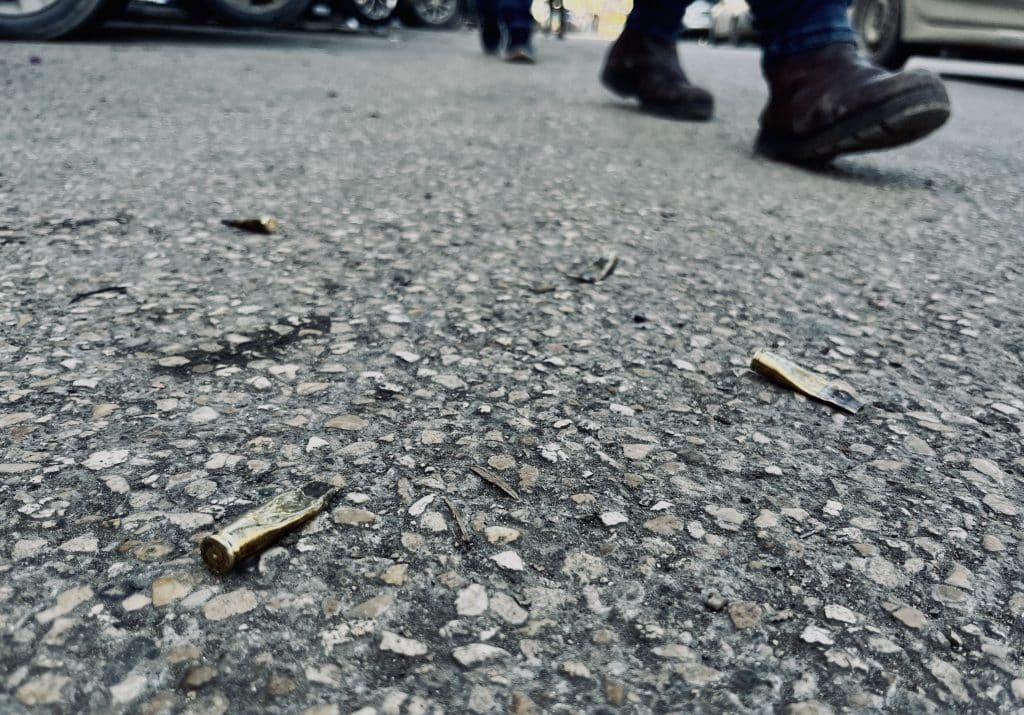
The Unity Intifada has been founded in this two-room apartment of the refugee camp: where the Freedom Theatre too was founded. During the First Intifada. By Arna Mer. A Jew. It was destroyed during the Second Intifada, and later on, it was rebuilt by her son. Juliano Mer-Khamis. And by the only one of his childhood friends who was still alive. Zakariya Zubeidi. Who had become the leader of the al-Aqsa Brigades. And the most wanted. For the Freedom Theatre he laid down weapons, and for long, Jenin was a coming and going of artists from all over the world. Until the day Juliano Mer-Khamis was murdered: by a killer who has yet to be identified. It was 2011. And step by step, all crumbled. Zakariya Zubeidi was heard of again ten years later: after a BA and a MA in Sociology, he had been arrested once more. And he had just broken out by digging a tunnel with a spoon.
To come back to found the Jenin Brigades.
Now he is in prison. And the frontman is Jibril Zubeidi, 36. His brother. “It was not because of a specific event. The trigger here is the context itself. The far-right in Israel got increasingly violent: and the Palestinian Authority increasingly adrift,” he says. The president, Mahmoud Abbas, is 87, in a population whose median age is 21. And his term expired in 2009. Elections were last held in 2006. “He calls us to surrender guns. But he can’t even get back from Israel the bodies of our dead. Which lie in morgues for months, as bargaining chips. What does he expect to achieve for the life of the alive?,” he says. “I tried my best. I tried everything I could. I tried to study, but I was in and out of jail all the time. I tried to move abroad, but I was denied a visa. I tried to work in a car repair, but it was demolished. Deploy the Blue Helmets: and I will stop fighting. But don’t tell me about the future. About road maps and peace talks and peace processes. Because my problem is now.”
“And when he says he tried everything he could, it means really: everything. Like everyone,” nods one of his comrades. Who is 18, born in 2004: the year of the opinion on the Wall of the International Court of Justice. Because after the Second Intifada, Palestinians staked all on international law. And international solidarity. As Nelson Mandela’s South Africa. The Friday demonstrations, the BDS campaign for boycott and sanctions, the UN seat, the membership in the International Criminal Court. The lawsuits in Israeli courts with the lawyers of B’Tselem and al-Haq. If rockets are the emblem of Gaza, in these years the emblem of the West Bank was Ahed Tamimi: the slap of Nabi Saleh. “But what did we get? That today the Wall is a tourist attraction,” he says. “A background for selfies.”
“The only difference is that in the past, you were a target if you were a militant. Now you are a target no matter what. You are a target because you exist,” he says.
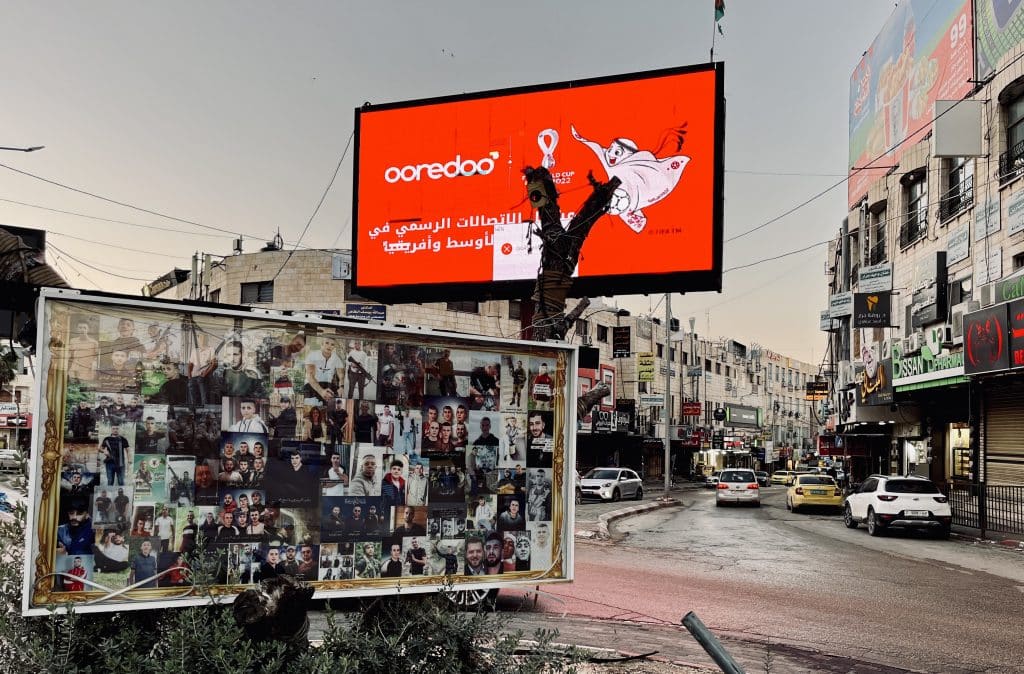
They are twenty-somethings like all others. Blundstone boots, a hoodie. And they take you aback. So well mannered. Many of them hold a degree. You realise they are wanted only because instead of an iPhone, they have a Nokia. To dodge drones. And yet they are jihadists. No connection with al-Qaeda, of course. Especially because they are not against Israel itself, but against the occupation. They are jihadists according to the literal meaning of the word: jihad, striving for what is right – what you believe to be right. Fighting is a moral choice, regardless of consequences. Of results.
They don’t care they face a nuclear power.
They don’t care they are living on borrowed time.
And that’s why they are so troubling. Because they are game for anything.
And even for nothing in return.
And most of all, because they are fed up with Fatah and Hamas.
Ultimately, they listen only to themselves.
Jenin is the northernmost city of the West Bank, it is about 40 miles away from Ramallah. A three-hour drive, or a four-, five-, seven-: depending on checkpoints. And there is nothing. A park, a cinema, a football pitch. A music venue. Only pictures of martyrs, as Palestinians say, everywhere: the pictures of those who were killed – or killed. You ask where do you go, to hang out with friends: and no one gets your question. You don’t walk around with Google Maps here, but with Wikipedia. A street is the street where al-Jazeera journalist Shireen Abu Akleh was gunned down, another one is the street tanks enter from, another one the one where still, sometimes, bones from 2002 resurface – the year the refugee camp was razed to ground. That’s what all Jenin looks like. Jenin is the symbol of the failure of Oslo: negotiating, but in the meantime, building a state, institutions – a normal life. “Most funds went to Ramallah. And by the way, now there are medicines in pharmacies, yes: but you can’t afford them. There is a university: but you can’t find a job. Because under occupation, there is no possible economy,” says the mayor, Nidal Abu Saleh. Because now there is a mayor, yes: but the city council has no electricity.
And on top of that, aid dropped by half. Now it is all for Ukraine.
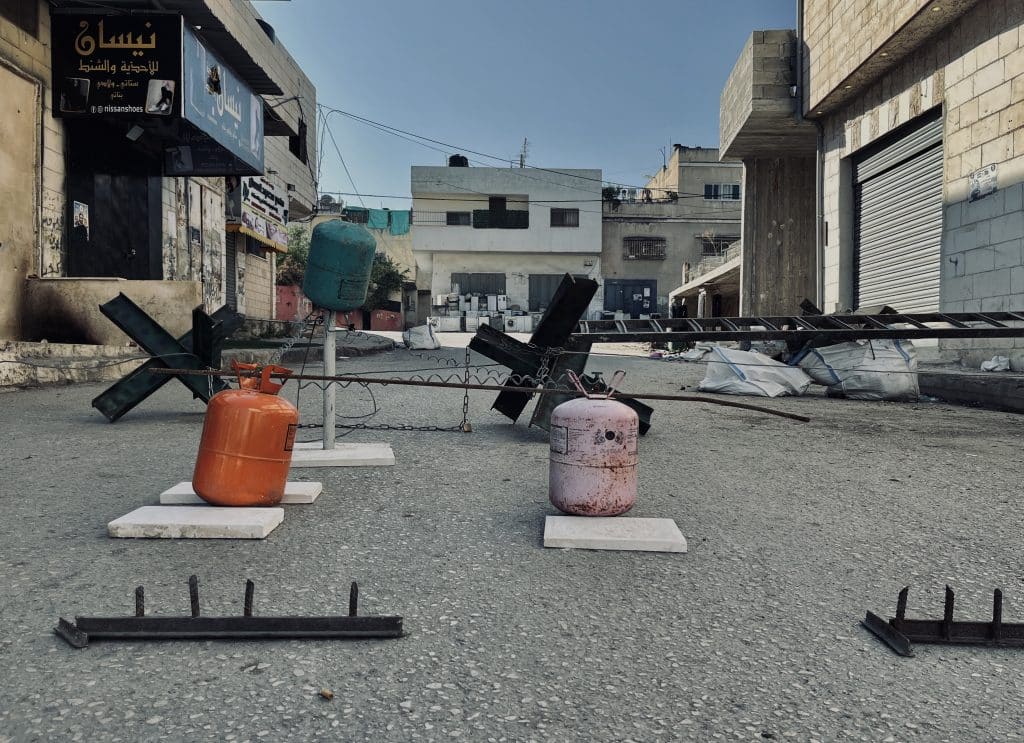
Somehow, Jenin matters more for Israelis than for Palestinians. Because it is a three-hour drive away from Ramallah: but just ten minutes away from Jalamah. From the border.
And that’s the shortest way for suicide attacks.
The first was in 1994. And it was the revenge of Hamas for Baruch Goldstein – who opened fire in the main mosque of Hebron. Today Itamar Ben-Gvir, the far-right extremist who has just been appointed minister of Security, has his picture at home.
Today in Jenin, downtown Jenin, and in plain light, suddenly you see special forces jumping out of a nondescript minivan. They look like workers coming to fix a pipe, an antenna: they are Israelis coming to catch a wanted.
Today anyone, here, can actually be the enemy.
The Freedom Theatre responded to the murder of Juliano Mer-Khamis by leaving its door always open. And a light always on. But there is no other NGO, it is the only one left. And it is the shadow of its former self. “Resistance takes many forms, and ours has always been cultural resistance. By watching yourself on a stage, by watching yourself from outside, you understand who you are: and if you are what you want to be,” says the chair, Mustafa Sheta. “Because if in the end you replace the occupation with Mahmoud Abbas or Sharia law, there is no point.” Think of Lebanon, he says. Israel withdrew, and all is worse off. “But no one pause to reflect anymore. Armed resistance is legitimate, true, it is our right, but the question is also: Does it make sense? Because it is not just about remaining on our land: but remaining remaining ourselves.”
Adnan Naghnaghiye is the technical manager of the Freedom Theatre, and its historical memory: he has been here from the start. And he is blunt. He says: We are back to square one. “But the Second Intifada was more structured. You had Hamas and Fatah. And a strategy. While now you don’t follow Hamas or Fatah, you follow Instagram. You follow TikTok. Now anyone can decide enough is enough: and take action,” he says. And anyone means really: anyone. Raed Hazem, the one of Dizengoff Street, worked here.
Today anyone, in Israel, can actually be the enemy.
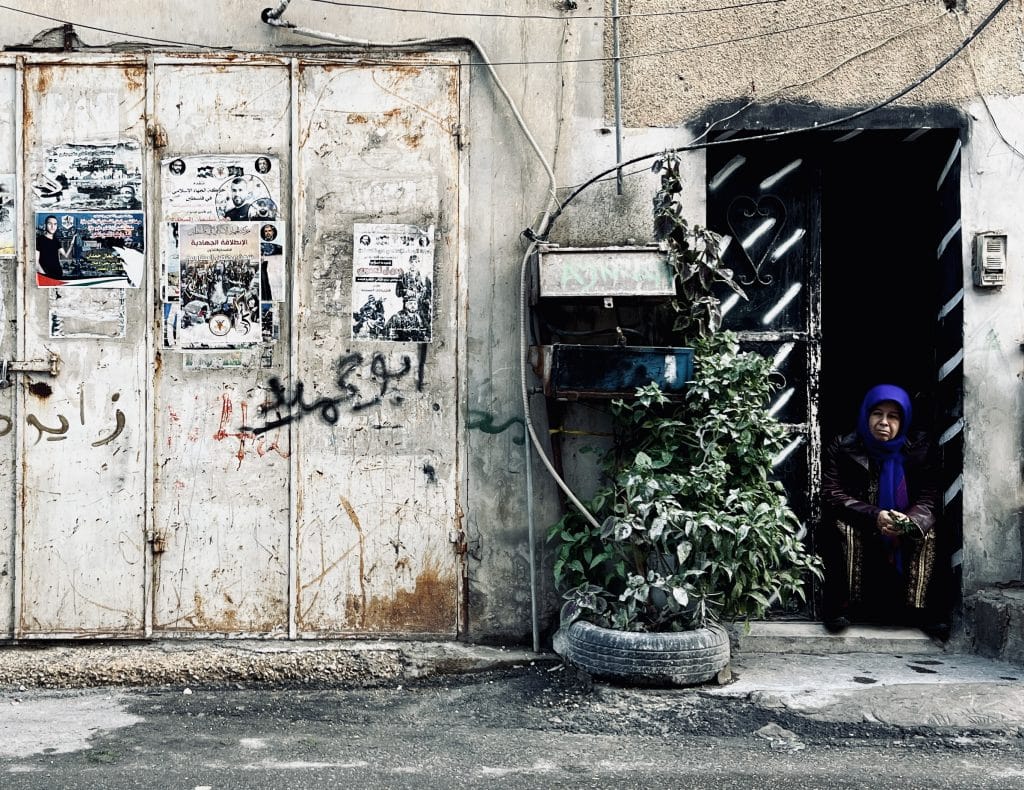
There is no organisation: and somehow, that’s an asset. The cemetery, here, turned into a kind of hangout, like the cemetery of Nablus, where teenagers spend their night among the graves of the Lions’ Den: because Jenin is only one of many hotspots. Which inspire and boost each other. Hebron, with its daily confrontation with settlers, Sheikh Jarrah, where the enemy are bulldozers, eviction orders, Nabi Saleh, which still stands against the Wall. And Gaza, of course. It is like a relay. Once quelled the flames, another fuse is set on fire.
Another frontline.
Including the Israeli frontline. The frontline of the Raed Hazems.
In this way, they can be crushed: but they can’t be wiped out.
And yet their main asset is their main flaw as well. “Because with no organisation, they are unpredictable, and hard to stop: but easy to manipulate. Where all these guns arrive from? Who pays? And with which agenda?,” says Adnan Naghnaghiye. Sooner or later, Mahmoud Abbas will step down. And the day of reckoning will come. Hamas and Fatah are divided, and internally divided too. With divisions that mirror the divisions among Iran, Qatar, the Emirates. The United States. “My son too is in prison. But to be honest, I prefer so,” he says. “I don’t want him to be killed. But nor I want him to kill.”
During the latest airstrikes on Gaza, in August, Hamas didn’t retaliate, because Israel pounded the Islamic Jihad: its staunch rival.
It didn’t go unnoticed.
There are two Britons on visit, in the meantime. They have no idea who is Zakariya Zubeidi, they did not even Google the Freedom Theatre. But they root for armed resistance. “Of course. They won’t pay any price,” says one of the actors.
There is the rehearsal of “Metro Gaza”. Of a Swiss director. Though he has been here for over a month, he did not bond with Jenin, and you get the feeling he was selected because there was basically no one else: this is the first post-Covid play. The Islamisation of resistance drives international activists away – especially now that from Ukraine to Rojava, there are easier alternatives around. But it is a mutual estrangement. In the past, Palestinians started NGOs. Today the plan is starting an Airbnb.
By contrast, all Jenin backs its Brigades. Here all have a dead in the family, injured, prisoners, destroyed homes, denied treatments, all have a life which looks like an Amnesty International report: but Jenin is the only city where Palestinians recite the list not with despondent eyes, but actually, with pride. And defiant eyes. Because that’s what your reputation is based on. The longer the list, and the lesser you are a victim: the more it means that you reacted. You persisted. And on top of that, every family here is a mix. Someone fights, others do not, others would never fight, someone is Fatah, someone Hamas, someone PFLP, someone is fed up and just wants to leave: that’s why there is room for every standing. That’s why there is unity. And it’s not only about youths. At the hospital entrance, there is the picture of Abdullah al-Ahmad, a renowned doctor. Killed on October 14. A picture with an M16.
The man who tells me his story speaks English fluently. Why?, I ask. Where did you learn it? He was a high-ranking official in a UN agency.
Now he says: This time we won’t make any mistake.
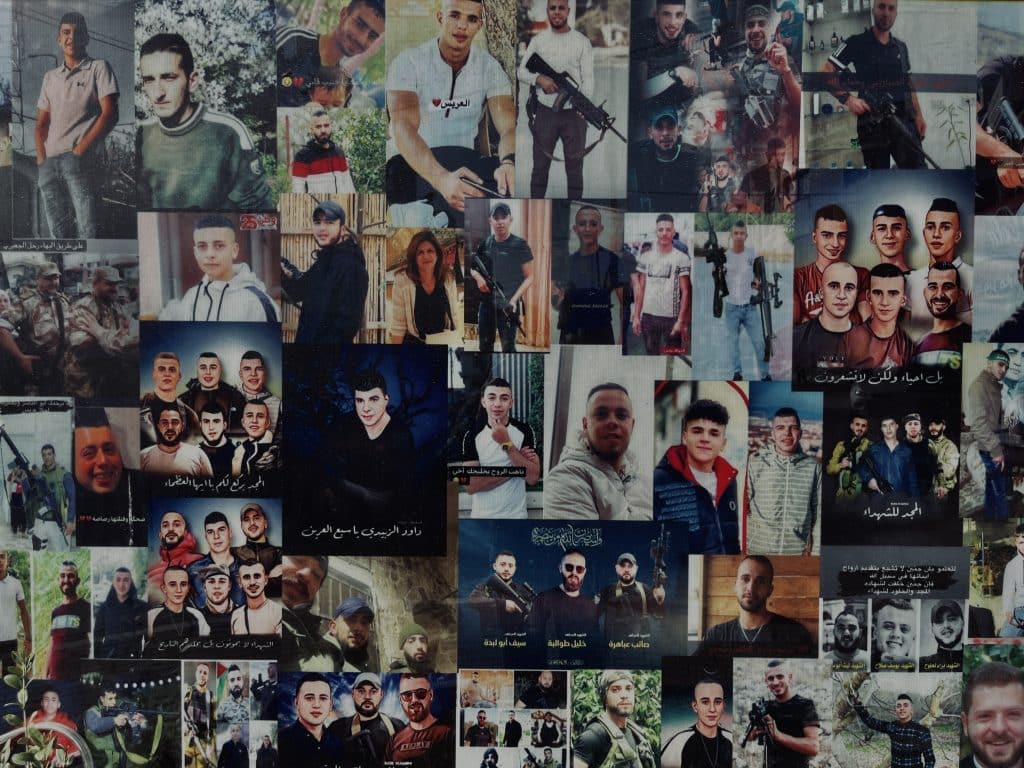
“There is nothing new, actually. Israel’s right turn dates back to the murder of Rabin,” says the governor, Akram Rajoub. “Israel is not stronger than ever. At all. It went to the polls five times in four years. Netanyahu promised the earth to settlers, because without the settlers, whose number tripled since the Oslo Accords, he would have no majority. And he will keep his word to keep his majority.” And with it, not only his government: but the immunity from the trials he is involved into. Israel seeks our reaction, he says: it is a trap. “But many Palestinians don’t realise it. And shoot at tanks. You barely scratch them. And should you even get RPGs: Israel got F35s.” There’s no head, he says. There is no guidance, he means, but also: no mind. Because militarily, there is no match. “But they watch our flag in the World Cup, and they think that the world is with us. That we will win.”
The Second Intifada, we have seen how it turned out, he says. And yet he says: But how can I restrain them? What alternative can I provide? What future?
It is early evening. And in the West Bank today there are already five dead.
It is 2:04 a.m. when suddenly, a blast whitens the night, and from minarets, muezzins call to arms. Lights switch on, one by one, and all Jenin wakes up as an Israeli convoy makes its way through the main street, and immediately, counterfire showers tanks, which calmly, don’t even go off course, don’t even speed up, as everybody wakes up, throughout the West Bank, throughout Gaza, and like a boundless rear, Palestinians swap tips on Telegram, where to move, where to hide, where to aim, all turned into sentries, into dispatch riders, who sees whom in the hive of alleys – and for an hour, it is a battle. The crackle of gunfire dotted only by ambulance sirenes.
And at any wounded, any fallen, a chorus. Allah Akbar.
In the morning, Palestinians are all in front of the morgue. Gloomy. They stare at the ground, as the injured limp away with a bruised eye, a bandaged head. Those who night-time were the new martyrs, the new heroes to celebrate, now are just new bodies.
Jibril Zubeidi is shaken up. One is Naeem Zubeidi. His cousin.
He looks at me. He says only: But then my son will come, and my son’s son.
December 2022
To Read Text in PDF Format Click here.



